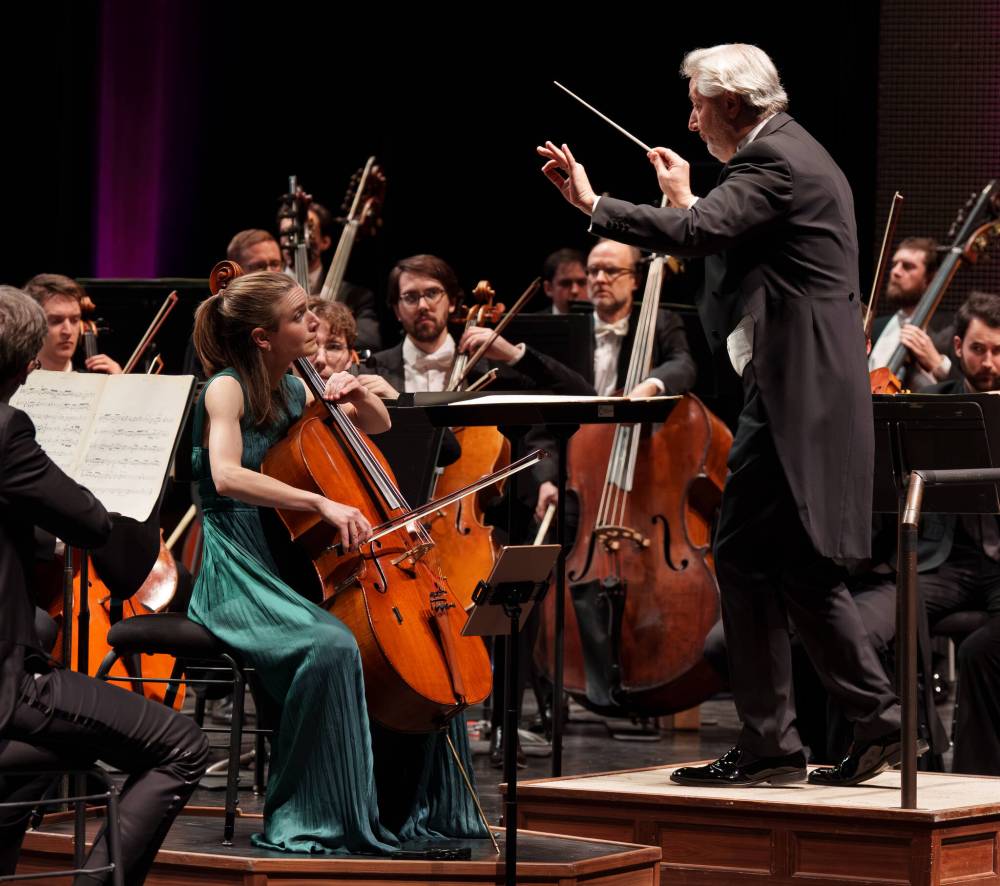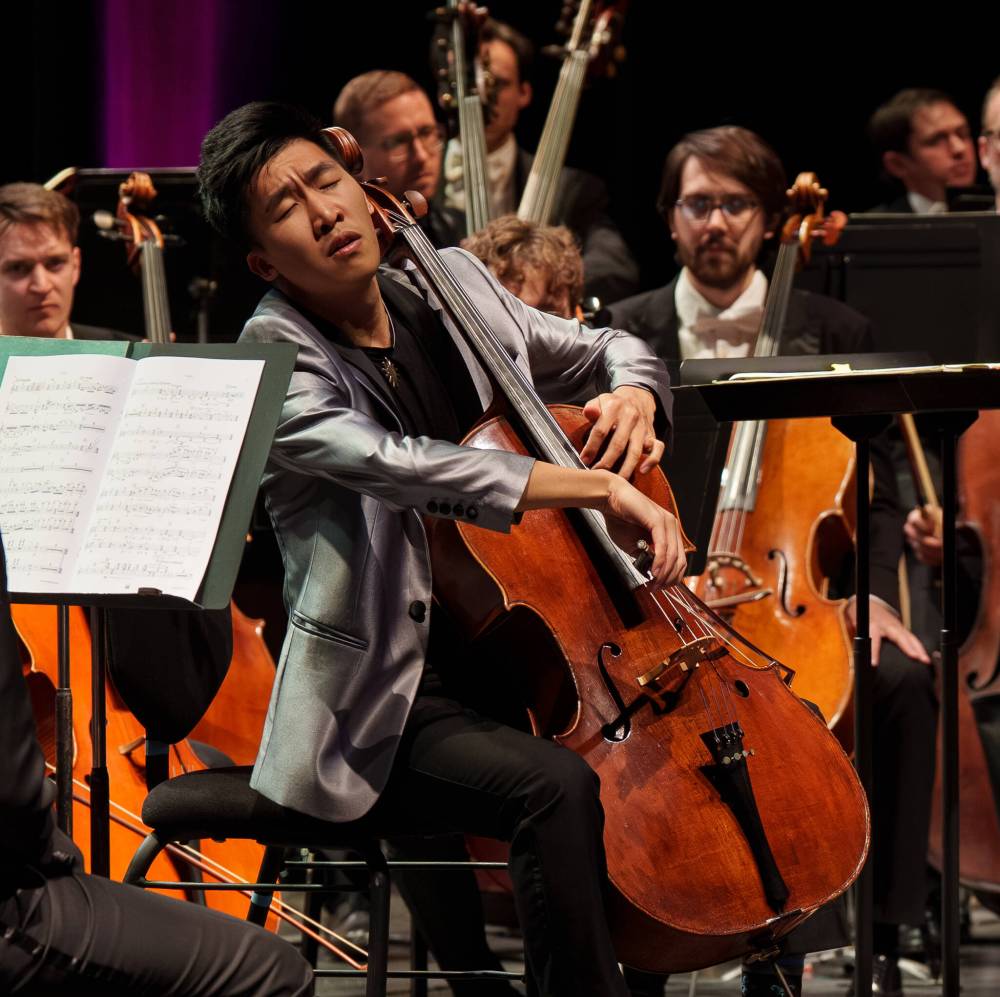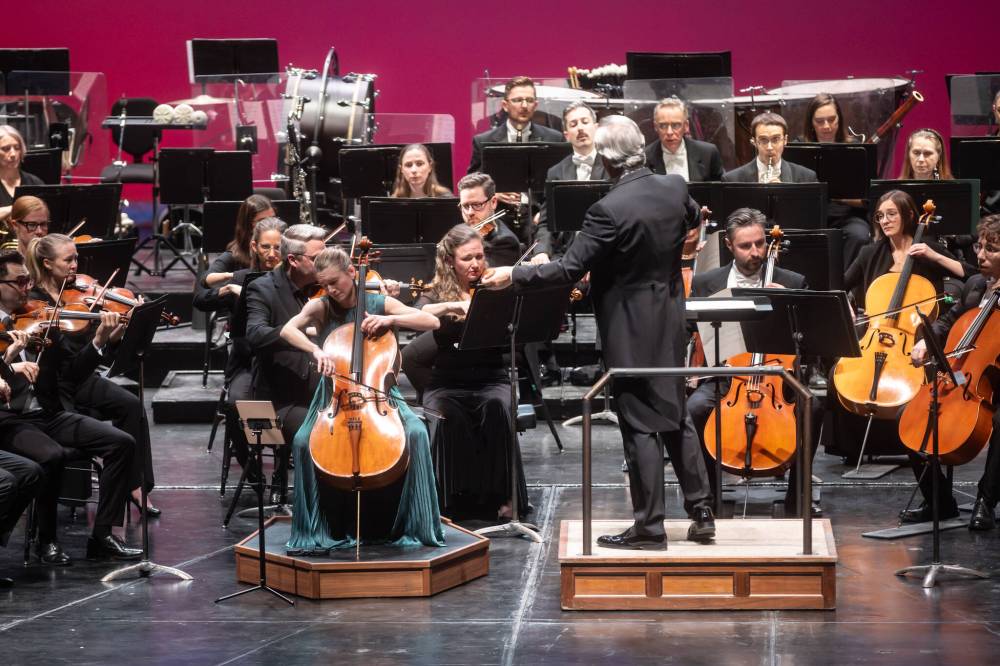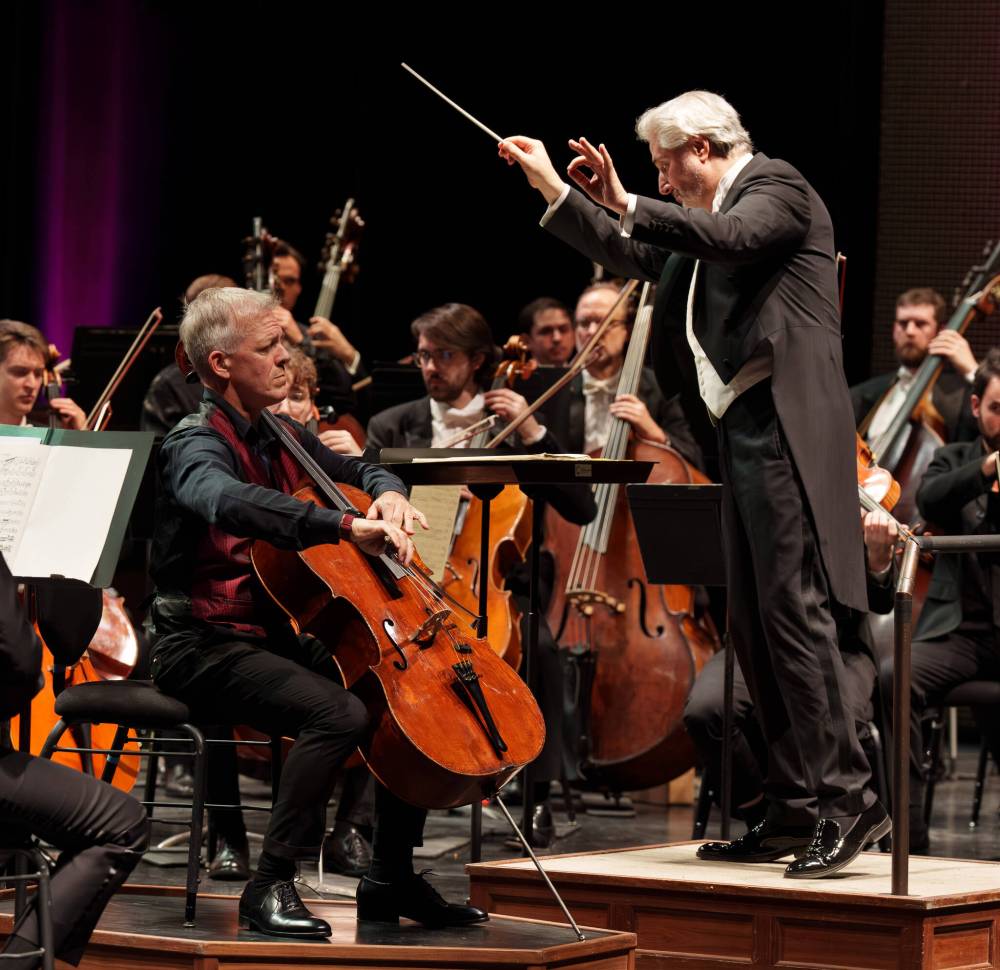Varied program highlights virtuosity of guest cellists
Festival wraps up with drama, romance and quixotic quest
Advertisement
Read this article for free:
or
Already have an account? Log in here »
To continue reading, please subscribe:
Monthly Digital Subscription
$0 for the first 4 weeks*
- Enjoy unlimited reading on winnipegfreepress.com
- Read the E-Edition, our digital replica newspaper
- Access News Break, our award-winning app
- Play interactive puzzles
*No charge for 4 weeks then price increases to the regular rate of $19.95 plus GST every four weeks. Offer available to new and qualified returning subscribers only. Cancel any time.
Monthly Digital Subscription
$4.99/week*
- Enjoy unlimited reading on winnipegfreepress.com
- Read the E-Edition, our digital replica newspaper
- Access News Break, our award-winning app
- Play interactive puzzles
*Billed as $19.95 plus GST every four weeks. Cancel any time.
To continue reading, please subscribe:
Add Free Press access to your Brandon Sun subscription for only an additional
$1 for the first 4 weeks*
*Your next subscription payment will increase by $1.00 and you will be charged $16.99 plus GST for four weeks. After four weeks, your payment will increase to $23.99 plus GST every four weeks.
Read unlimited articles for free today:
or
Already have an account? Log in here »
The third International Cello Festival of Canada had the world by a string Saturday night as it capped nearly a full week of nightly concerts, intimate recitals, master classes, “cello chats” and early morning Bach cafés with its celebratory Gala Finale: For Rita.
The program — led by Daniel Raiskin and performed in partnership with producing company Agassiz Chamber Music and the Winnipeg Symphony Orchestra — featured four orchestral works performed by a trio of the fest’s internationally renowned guests, providing the eager crowd of 1,903 with a last taste of their sublime artistry.
The evening began with Agassiz artistic director Paul Marleyn, joined onstage by festival host Andrea Ratuski and the WSO’s Simeon Rusnak, paying poignant tribute to Rita Menzies, the revered arts leader and former executive director of the organization. Menzies, who spearheaded both prior festivals in 2011 and 2014, died in June at age 83.

Mark Rash photo
Cellist Denise Djokic plays Strauss in Saturday night’s sentimental sweet spot.
Then it was time for the impressive sight and sound of 58 cellists, including festival guest artists, WSO section players and community-based musicians, assembled en masse for Villa-Lobos’s Preludio from Bachianas Brasileiras No. 1.
One of the festival’s highlights, this all-too-brief performance bore witness to the highly supportive collegiality that was showcased all week long, with such luminaries as U.K.-based cellist Colin Carr, Canada’s own Cameron Crozman and Austrian cellist/composer Matthias Bartolomey, among others, happily playing side by side with their string compatriots.
One of the evening’s two Canadian featured soloists, Berlin-based cellist Bryan Cheng delivered an electrifying performance of Korngold’s Cello Concerto, Op. 37 that was well worth the wait. It was originally billed by the WSO three years ago but was postponed owing to the pandemic.
Cheng is one of those riveting artists you simply cannot get enough of. He immediately pounced on his notes, snapping strings in visceral pizzicato and tossing off the enthralling rhapsodic passages laced throughout the compact piece, penned for the 1946 film noir Deception.
Raiskin and his players kept pace throughout, matching the soloist note for note as they buckled down for this dazzling WSO première.

Mark Rash photo
Canadian cellist Bryan Cheng delivers an emotional rendition of Korngold’s Cello Concerto, Op. 37.
The second Canadian was Denise Djokic, who originally hails from Halifax, N.S. The acclaimed cellist treated listeners to Richard Strauss’s Romanze for Cello and Orchestra, a lushly scored work written when the composer was 19 in 1883, with its modern edition only appearing in 1986.
Djokic launched into the work with gracefully arched phrasing and a warmly mellow tone, pouring her art and soul into the evening’s sentimental sweet spot.
The program’s centrepiece saw German dynamo Alban Gerhardt returning to the WSO stage after a 20-year absence for another Strauss offering, the sixth of his nine tone poems, Don Quixote, last performed locally in 2005.
Inspired by Spanish writer Miguel de Cervantes’s novel, the loosely narrative-based work — with the soloist morphing into the story’s dreamer/adventurer knight — has divided listeners since its 1898 première with its knotty, unapologetic complexity. It features densely packed harmonic language and leapfrogs among disparate styles and moods.
The late Romantic composer is arguably an acquired taste and the work proved an unusual programming choice for a festival gala finale, demanding a certain commitment by listeners, who would have been well advised to eschew the detailed, printed synopsis and simply allow its cinematic ethos to wash over them.

Matt Duboff photo
The finale of the cello festival saw 58 cellos convene on the concert hall stage.
However, this takes nothing away from Gerhardt’s wholly compelling, well-paced performance, with the artist digging in hard to the 45-minute, three-part work performed sans score, as he brought his protagonist’s multi-faceted personality to life.
It’s also not every day one gets to hear a wind machine onstage, with its powerful whoosh, evoking windmills, further heightening the operatic drama of Cervantes’ classic tale.
Kudos to principal violist Elise Lavallée, who “plays” Don Quixote’s trusty sidekick Sancho Panza, introduced during Part II: Theme and Variations, with each exposed solo passage confidently rendered. Other noteworthy performances belonged to oboist Graham MacKenzie as the Don’s “ideal woman,” Dulcinea, as well as a nifty brass chorale emulating a procession of soulful monks during Variation IV.
Raiskin’s expansive approach helped propel the tone poem forward, punctuated by the soloist’s expressive, often pensive interpolations, which are integral to the fabric of Strauss’s textural, masterfully score.
The work ends with Gerhardt’s instrument, now evoking the exhausted Quixote, slipping away towards death, his final utterance depicted by a one-octave glissando to his lowest register, signifying the end had come.

Matt Duboff photo
Denise Djokic performs at Gala Finale: For Rita as the International Cello Festival wraps up Saturday.
Clearly unfazed by this decidedly gloomy ending, the audience leapt to its feet at the end, enthusiastically cheering for the soloist, maestro and orchestra players as the festival arrived at its final curtain call.
Bravo to Marleyn, his magnificent roster of internationally renowned cello stars, Canadian and local musicians, and the behind-the-scenes team — especially the tireless volunteers who are the lifeblood of any large-scale event — for bringing the world to our doorstep for six glorious days and nights this past week.
holly.harris@shaw.ca

Mark Rash photo
German cellist Alban Gerhardt returns to the WSO stage after 20 years with Don Quixote.
Holly Harris writes about music for the Free Press Arts & Life department.
Our newsroom depends on a growing audience of readers to power our journalism. If you are not a paid reader, please consider becoming a subscriber.
Our newsroom depends on its audience of readers to power our journalism. Thank you for your support.
History
Updated on Sunday, November 2, 2025 6:21 PM CST: Fixes typo


